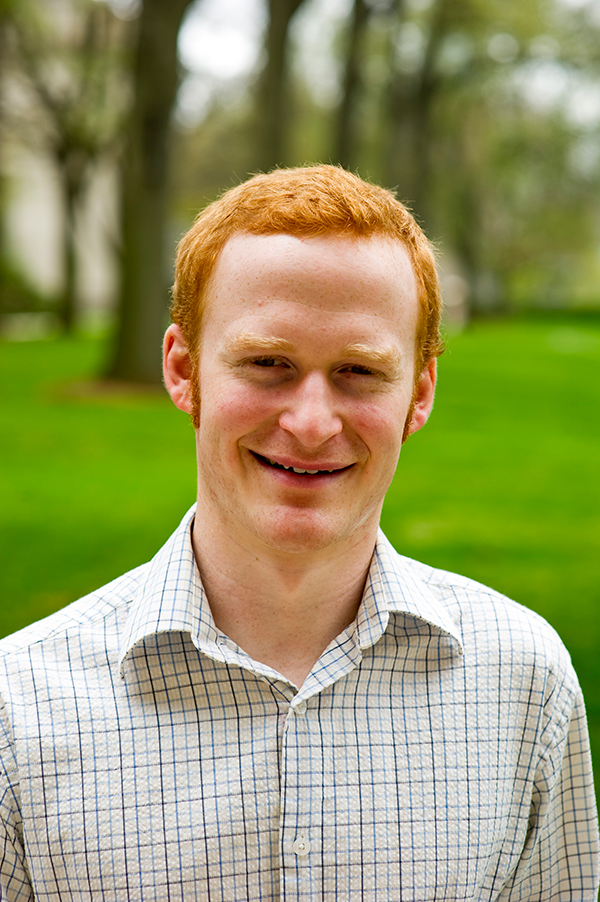Nanoengineer Receives Award from Energy Department to Advance Solar Power Technologies
Published Date
By:
- Liezel Labios
Share This:
Article Content

David Fenning, a nanoengineering professor and faculty member of the Sustainable Power and Energy Center at UC San Diego, has received an award from the U.S. Department of Energy SunShot Initiative to develop a new tool aimed at advancing solar power research.
University of California San Diego nanoengineering professor David Fenning has received an award from the U.S. Department of Energy SunShot Initiative to lead a new project aimed at advancing research in solar photovoltaic technologies.
The project will focus on developing a high resolution tool that can detect moisture in photovoltaic modules and predict how it will affect the modules’ performance. Moisture is known to accelerate damage to photovoltaic modules, but researchers currently have no methods to observe it or find out how it leads to a degradation in performance. Fenning, who is a faculty member of the Sustainable Power and Energy Center at UC San Diego, proposes new research to address these challenges.
“Moisture has been a missing variable in our assessment of solar panel reliability,” said Fenning. “We see its effects but have never been able to measure it directly before. This project aims to change that using a scalable characterization approach that could be used widely for assessing moisture in rooftop and field installations.”
The tool will be designed to pinpoint the location of any water in photovoltaic modules, measure how much is present and model how water degrades photovoltaic module performance — at the atomic level and up.
The team will combine first-principles atomistic modeling of the segregation, diffusion and chemical effects of interfacial water with continuum finite element method modeling of the detailed micro-characterization of water distribution and its effects. The goal is to create a physical model of a module’s water exposure over time, with predicted changes in material properties and power output. Based on these data, the team will develop statistical response surface models to predict a module’s hazard function.
“This work will enable us to put a number on how much more energy existing solar installations can be expected to produce over their system lifetime. Not only that, but by developing fundamental knowledge of how moisture degrades PV modules, we will be able to propose and analyze new module designs engineered to last years longer. This will help lower the overall cost of solar power,” Fenning said.
Fenning’s project is one of 48 projects selected this year to receive funding from the SunShot Initiative. These projects are intended to develop innovative, early-stage solar power technologies, which are aimed at lowering costs and improving reliability and efficiency.
“The SunShot Initiative is a proven driver of solar energy innovation,” said SunShot Initiative Director Charlie Gay in an Energy Department statement. “These projects ensure there’s a pipeline of knowledge, human resources, transformative technology solutions and research to support the industry.”
The UC San Diego project will receive $750,000 in federal funds. The project falls under the umbrella of Photovoltaics Research and Development 2: Modules and Systems, the latest program in SunShot’s efforts to fund early-stage research and development designed to make solar one of the most cost-efficient energy sources in the nation. View the full list of awardees here.
Share This:
Stay in the Know
Keep up with all the latest from UC San Diego. Subscribe to the newsletter today.



